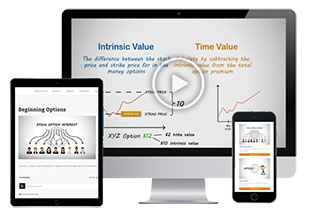Starting and running an options trading company can be as simple as reviewing your sales from a brokerage account. Options fit capital and time; hence, always start slowly and run it as a side project. Running an options vending company can be done online, on a flexible schedule, and returns can be wholly separate from when you invest. Here are five tips on running an options trading business.
Always Manage Risk in Options Trading
Managing risk is among the most essential skills of options trading. You must have a well-defined risk management plan to guard your capital and stop significant losses. This covers avoiding too great leverage, diversifying your trades, and creating stop-loss orders.
Position sizing is another efficient risk management strategy. Your overall portfolio size and risk tolerance will help you decide the suitable capital amount to allocate to every trade, improving the control of possible losses on your account. Good risk management protects your capital and lets you trade confidently and with discipline.
Contact the best tradeline companies to improve your credit scores and increase your chances of success in the financial markets. With a solid risk management plan and improved credit scores, you can set yourself up for long-term economic stability and growth.
Use Timing in Options Trading
In options trading, timing counts for everything. Accurate identification of entrance and exit locations helps to optimize gains and reduce losses. Charts and indicators, among other technical analysis tools, can be quite helpful in deciding whether to start or stop a trade. Additionally, helping to optimize your timing is closely monitoring market patterns and remaining current with pertinent news.
Mastering the timing of your trades depends on knowing the idea of implied volatility and how it affects option pricing. Implied volatility can significantly affect the value of options contracts since it indicates the market’s expectations for future price variations. Including implied volatility analysis into your trading plan can help you to make better decisions about the timing of your trades and maybe improve your general profitability.
Investing in the Long-Term and Short-Term
Options trading allows for a few days to several months or years as the expiration dates. It relies on the underlying stock’s liquidity. Usually, the danger increases with a shorter term for a choice. Long-term investments are thus usually the greatest choice available for trading. That implies selecting ones with either monthly or annual expiration dates.
The longer the expiration date, the more time you will have to make your investment plan effective. The extended expiration period allows the option to preserve temporal value even if the stock turns out to be trading below the strike price.
Understanding the Risks
There is a risk component to all forms of trading. However, you may lower the risk even more by spending more time studying options trading and the many tactics you might use. While the option’s seller would theoretically have unlimited risk on a call because the price could rise indefinitely, the buyer of a put or call option would only have risk equal to the premium paid for the option.
Determine How Much to Invest in Options Trading
Although there isn’t a set amount that you can invest in options trading, you can better ascertain the minimum investment amount based on the kinds of options you are permitted for and the particular regulations of the broker you choose. In general, a $1,000 minimum deposit is needed for level one admission. The minimum deposit for tiers two and three may reach $10,000.
You might be surprised to learn how simple it is to operate a successful options trading business from home with the correct broker. The keys to effective options trading are simple knowledge of the subject and various tactics. If you’re a total novice, you should start with modest investments. You can invest more and earn even larger returns as you gain knowledge and make money.







